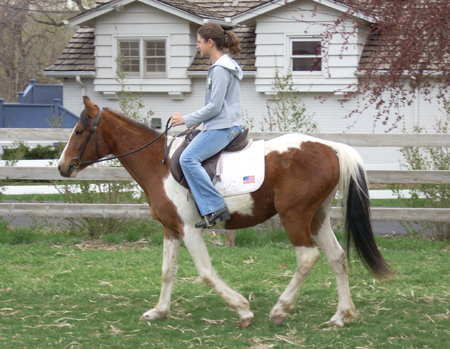How to Cope With Trotting Pains When Horseback Riding

Trot is a horse’s controlled, two-beat gait, when it moves its fore and hind limbs simultaneously in diagonal pairs. The horse moves pairs of legs forward in unison, with a moment of pause between each beat. A lot of trotting can lead to sharp, stabbing pains in the rider’s abdominal region, just beneath the rib cage. While trotting pains can happen to any rider, people suffering from different respiratory conditions, such as asthma, are more prone to these pains. A little more than normal cantering or jumping can cause severe abdominal and back ache for chronic asthma patients. With a little care and vigilance however, you can avoid trotting pains.
Instructions
-
1
Understand the cause of trotting pains
If you are experiencing trotting pains after horse riding, the first thing is to understand what is causing these pains. There are several factors that can cause trotting pains during horseback riding, but the most common and proven cause is lack of breath. Trotting pains mostly occur when you focus so much on riding that you forget to breathe properly. -
2
If you have asthma use your inhaler before riding
If you are an asthma patient, never start riding without using your inhaler. This will open up your lung passages, making it easy for you to breathe when trotting or cantering. -
3
Avoid running before riding
If you are prone to trotting pains, avoid running before you ride. Running before riding will make it difficult for you to breathe in sufficient oxygen. Even if you don’t have asthma, it is better to avoid exercise or running before your lesson. -
4
Slow down immediately after you feel pain
Slow down to a normal walk immediately if you start feeling pains in your abdomen or back. However, keep your seat as normal as possible, otherwise your horse may become nervous. It is better to get off your horse and relax on a bench, chair or the ground. -
5
Breathe in and out quickly
Breathe in and out quickly as you start to feel the trotting pains coming on. You may feel an urge to breathe in deeply, but this will only increase the pain, making your condition worse.



